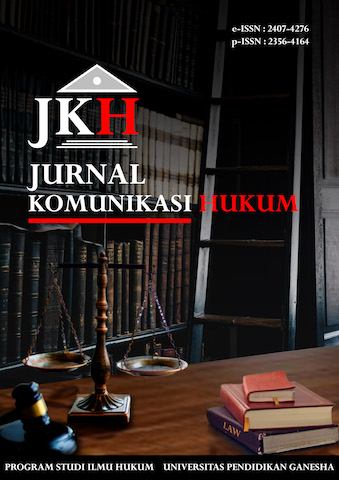REKONSTRUKSI PEMIKIRAN-PEMIKIRAN SUKARNO TENTANG TOLERANSI TAHUN 1926-1966 DAN RELEVANSINYA PADA MASYARAKAT INDONESIA DI ERA ABAD XXI
Abstract
The aim of writing this article is to reconstruct or rebuild Sukarno's thoughts about tolerance in 1926-1966 to be applied to Indonesian society in the 21st century. Meanwhile, the specific aim is to formulate Sukarno's thoughts on tolerance, and analyze the relevance of Sukarno's thoughts on tolerance to Indonesian society in the 21st century. The method used is the historical writing method. The results of the discussion show that Sukarno's thoughts about tolerance and his efforts to realize an attitude of tolerance took the form of: Initiating the unification of the ideologies of Nationalism, Islamism, Marxism, and putting them into practice to become Nasakom in 1960; Initiating the ideology of Marhaenism; Establishing PNI; Establishing PPPKI; Striving for the unification of PNI-Baru and Partindo; Embracing Ahmadiyya; Conceptualizing Pancasila; Revising the preamble to the 1945 Constitution and the Jakarta Charter version of Pancasila; Establishing the motto Bhinneka Tunggal Ika; Initiating Guided Democracy; and Rejecting the dissolution of the Nasakom concept after G30S. What's even more interesting is that Sukarno consistently fought for the idea of tolerance from the time of the national movement until the end of his life. If we observe the vertical and horizontal conflicts that often occur in Indonesia, Sukarno's thoughts about tolerance are still very relevant to apply to Indonesian society in the 21st century.
Downloads
Published
How to Cite
Issue
Section
License
Authors who publish with this journal agree to the following terms:- Authors retain copyright and grant the journal right of first publication with the work simultaneously licensed under a Creative Commons Attribution License that allows others to share the work with an acknowledgement of the work's authorship and initial publication in this journal.
- Authors are able to enter into separate, additional contractual arrangements for the non-exclusive distribution of the journal's published version of the work (e.g., post it to an institutional repository or publish it in a book), with an acknowledgement of its initial publication in this journal.
- Authors are permitted and encouraged to post their work online (e.g., in institutional repositories or on their website) prior to and during the submission process, as it can lead to productive exchanges, as well as earlier and greater citation of published work (See The Effect of Open Access).
Authors who publish with this journal agree to the following terms:
- Authors retain copyright and grant the journal right of first publication, with the work [SPECIFY PERIOD OF TIME] after publication simultaneously licensed under aCreative Commons Attribution License that allows others to share the work with an acknowledgement of the work's authorship and initial publication in this journal.
- Authors are able to enter into separate, additional contractual arrangements for the non-exclusive distribution of the journal's published version of the work (e.g., post it to an institutional repository or publish it in a book), with an acknowledgement of its initial publication in this journal.
- Authors are permitted and encouraged to post their work online (e.g., in institutional repositories or on their website) prior to and during the submission process, as it can lead to productive exchanges, as well as earlier and greater citation of published work (See The Effect of Open Access).












